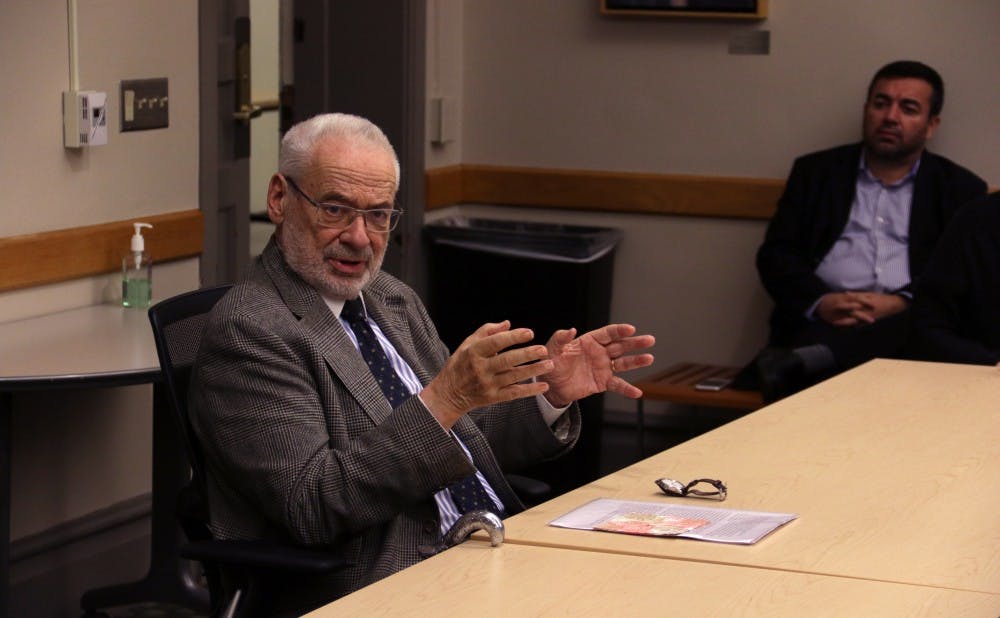Europe's disunity has come in part from secularism, Erhard Busek, Vice-Chancellor of Austria from 1991 to 1995, said at an event Monday.
At the Kenan Institute of Ethics event "Religion and the Future of Europe,” the former Vice-Chancellor spoke on religion and migration, saying that the current political disunity of Europe has resulted from secularization, increased immigration of Muslim populations and a fundamental lack of understanding between cultures.
Although religion once played a major role in uniting the European Union and its member countries, Busek—from an Austrian conservative party—said that is no longer the case.
“People always say we are Catholic Austrians; we are not anymore. We are just cultural Catholics who get married in Baroque churches,” Busek said.
Busek illustrated the diminishing of religious power with the example of the Balkans, explaining that Turkey—the leading geopolitical power of the Balkan region—has long struggled to strike unity with the region’s dissenting Albanian minority.
“The Albanians only believe one thing, and that is they are Albanians,” Busek said.
In an attempt to unite the Balkans through religious influence, the Turkish government pressured Albania into constructing the Great Mosque of Tirana in the country’s capital, Busek said. He evaluated the political decision with what he said was a quote by the Albanian prime minister at the time “No one will be there, but they can build it.”
Dialogue and empathy are Busek's solution to the fraying of Europe's ties.
As European knowledge of Islam is limited, Busek said, many Europeans bear the misconception that opening the door to Muslims means opening the door to terrorism. The result is a sentiment of needing to protect Europe from Islam, rather than integrating the faith.
Busek also explained that the recent immigrant population includes different sects within Islam—the most prominent of which include Sunnis, Shi’as and Kharijites—and each represents a differing interpretation and agenda of Islam, further complicating the issue.
Busek noted that understanding might be especially lacking between older and newer members of the EU.
“Don’t ask the French about what they know about Poland, about Ukraine, about Croatia,” he said.
Brexit may provide temporary relief to Europe’s fragmentation, the former Vice-Chancellor noted, pointing out that since declaring its departure from the European Union, Great Britain has faced severe political and economic ramifications.
“States don’t want to leave right now because they realize that they might have more problems outside of the European Union than inside,” Busek said.
He emphasized, though, that the European Union is not all of Europe—the continent includes Russia and a range of other Eastern European countries, each contributing distinctly to the geopolitical landscape of Europe and the rest of the world. Fostering dialogue between the different parts of Europe is critical to its success, Busek said.
“If Europe wants to survive, it has to work together," he said.
Get The Chronicle straight to your inbox
Signup for our weekly newsletter. Cancel at any time.

